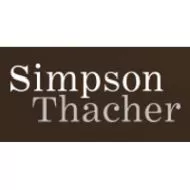The U.S. Department of Commerce's Bureau of Industry and Security ("BIS") has published a 50% rule (the "Affiliates Rule") that significantly expands U.S. export restrictions. Specifically, the Affiliates Rule restricts exports to foreign companies that are 50 percent or more owned by entities listed on the BIS Entity List and the Military End-User ("MEU") List and certain entities listed on the Department of the Treasury's Office of Foreign Assets Control's ("OFAC's") list of Specially Designated Nationals and Blocked Persons ("SDN List"). This is a major shift in U.S. export control enforcement and significantly broadens the scope of end-user controls under the U.S. Export Administration Regulations ("EAR"). The new rule is effective as of September 30, 2025, with a 60-day temporary general license (i.e., until November 28, 2025) that authorizes transactions with non-listed entities in countries friendly to the United States.
The 50 Percent Affiliates Rule
Under the new Affiliates Rule, the EAR licensing requirements are now extended to foreign entities that are 50 percent or more owned, directly or indirectly, by one or more entities subject to restrictions under the Entity List and the MEU List as well as persons on the SDN List designated under the specific OFAC programs listed in 15 C.F.R. § 744.8(a)(1).1
The Affiliates Rule replaces the longstanding "legally distinct" standard BIS previously used, which generally excluded from export restrictions non-listed subsidiaries of entities listed on the Entity List and MEU List. According to BIS, the adoption of the Affiliates Rule is necessary to address the diversion concerns enabled by the old approach and "close a significant loophole in restricted party lists." With some differences involving entities restricted under the MEU List, the Affiliates Rule operates in a similar manner to the 50 percent rule used by OFAC in connection with the SDN List.
1. The 50% calculation may involve ownership interests of both listed and unlisted entities.
The Affiliates Rule applies to any foreign entity that is owned, directly or indirectly, individually or in aggregate, 50 percent or more by one or more listed entities or any unlisted entities that are subject to restrictions based upon their ownership. The Affiliates Rule speaks only to ownership and not to control.
For example, suppose Company X is on the Entity List. Company X owns 50% of Company Y. Company Y in turn owns 50% of Company Z. Under the Affiliates Rule, Company X, Y and Z are each subject to the same Entity List license requirements that are applicable to Company X. Company Y is covered because it is owned 50% by a listed entity, Company X. Company Z is equally subject to the same Entity List license requirements because it is 50% owned by Company Y, which, even though unlisted, is subject to Entity List restrictions based upon its ownership.
Similarly, with respect to SDNs designated under the programs listed in 15 C.F.R. § 744.8(a)(1), the Affiliates Rule applies not only to entities owned 50% or more by one or more of the SDNs listed under the covered programs, but also to persons owned 50% or more by persons blocked pursuant to OFAC's 50 percent rule.
With respect to the MEU List, the Affiliates Rule applies to both entities owned 50% or more by listed MEUs and entities owned 50% or more by affiliates that are in turn owned 50% or more by listed MEUs. However, the Affiliates Rule does not apply to "unlisted foreign affiliates that are owned, directly or indirectly, individually or in the aggregate, solely by one or more unlisted 'military end users,'"—meaning, according to FAQs released by BIS, those entities meeting the criteria for MEUs under § 744.21(g) but are neither listed nor owned 50% or more by any listed MEU—"unless the unlisted foreign affiliate itself meets the definition of a 'military end user' [under § 744.21(g)]."
2. The most restrictive licensing requirement applies.
Under the new Affiliates Rule, if a foreign entity is owned 50% or more by multiple entities that are subject to EAR license requirements pursuant to some combination of the Entity List, MEU List, or SDN List designated under programs listed in § 744.8(a)(1), the most restrictive license requirements, license exception eligibility, and review policies apply. Moreover, for purposes of applying the Foreign-Direct Product ("FDP") Rules, the Entity List FDP requirements apply so long as at least one entity owning the foreign affiliate is within the end-user scope of the provision.
For example, suppose Company X is collectively owned 50% or more by three companies, the first of which is subject to the Entity List footnote 1 FDP Rule and under a license requirement that applies to all items subject to the EAR, the second of which is subject to the Entity List footnote 3 FDP Rule, and the third of which is on the MEU List. Company X is subject to all the license requirements and the FDP Rules applicable to each of its three owners. Thus, a license is required for exports to Company X of all items subject to the EAR, and for purposes of determining the scope of foreign produced items subject to the EAR, both Entity List footnotes 1 and 3 FDP Rules would be applied.
3. Any unresolved red flag requires a license application to BIS.
The Affiliates Rule also includes a requirement that if one cannot determine the ownership percentage of a foreign entity, one must resolve the red flag or obtain a license from BIS prior to proceeding with the transaction, unless a license exception is available. BIS has issued a new red flag under the EAR (Red Flag 29) which specifies that "where an exporter, reexporter, or transferor has 'knowledge' [including actual knowledge and awareness of a high probability] that a foreign entity has one or more owners that are listed on the Entity List or the MEU List, or that are unlisted entities that are subject to license requirements, such exporters, reexporters, or transferors have an affirmative duty to determine the percentage of ownership of those listed entities and if that is not possible, to obtain a license from BIS if required under the Entity List or MEU List based on the requirements for the listed owner or owners of that foreign entity, unless a license exception is available."
Temporary General License ("TGL")
The new rule contains a TGL that temporarily authorizes until November 28, 2025 (i) exports, reexports, or transfers (in-country) to or within any destination in Country Group A:5 or A:6 (mostly countries friendly to the U.S.) when a party to the transaction is captured by the Affiliates Rule; or (ii) exports, reexports, or transfers (in-country) to or within any destination other than Country Group E:1 or E:2 (currently, Cuba, Iran, North Korea, and Syria) when a party to the transaction is captured by the Affiliates Rule and is a joint venture with a non-listed entity headquartered in the United States or Country Group A:5 or A:6 that is not captured by the Affiliates Rule.
Notably, countries like China and Russia are not within Country Group A:5 or A:6, which means that exports to companies in these two countries, among others, must comply with the Affiliates Rule as soon as the new rule takes effect unless the counterparty satisfies the joint venture prong of the TGL.
Implications
The new Affiliates Rule has far-reaching implications for companies engaged in international trade, particularly those with complex supply chains or business relationships in jurisdictions with opaque ownership structures.
BIS also makes clear that exporters, reexporters, and transferors will be held on a "strict liability basis" to comply with the new Affiliates Rule. There is also no exception for any contracts executed prior to the effective date. As a result, companies should undertake steps as soon as possible to scrutinize the ownership structure of all foreign entities to which they sell products subject to the EAR. To the extent the TGL does not apply, companies may need to suspend sales or dealings immediately with entities captured by the new Affiliates Rule and consider submitting a license application to BIS.
Footnote
1. The relevant OFAC program identifiers listed under 15 C.F.R. § 744.8(a)(1) are BELARUS-EO14038, BELARUS, RUSSIA-EO14024, UKRAINE-EO13660, UKRAINE-EO13661, UKRAINE-EO13662, UKRAINE-EO13685, FTO, SDGT, NPWMD; ILLICIT DRUGS-EO14059, SDNT, SDNTK, and TCO.
The content of this article is intended to provide a general guide to the subject matter. Specialist advice should be sought about your specific circumstances.













